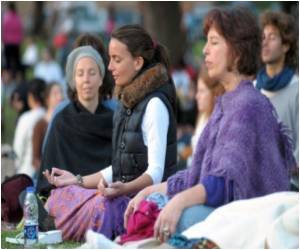Professional ballet and modern dancers are not as emotionally in sync with their bodies as are people who regularly practice meditation, says a new study.

They found that dancers who devote enormous time and effort to developing awareness of and precise control over their muscles do not have a stronger mind-body connection than do most other people.
By contrast, veteran practitioners of Vipassana or mindfulness meditation - a technique focused on observing breathing, heartbeat, thoughts and feelings without judgment - showed the closest mind-body bond, according to the study.
"We all talk about our emotions as if they are intimately connected to our bodies - such as the 'heartache of sadness' and 'bursting a blood vessel' in anger," said Robert Levenson, a UC Berkeley psychology professor and senior author of the study.
"We sought to precisely measure how close that connection was, and found it was stronger for meditators."
The results offer new clues in the mystery of the mind-body connection.
Participants, who ranged in age from 18 to 40, were wired with electrodes to measure their bodily responses while they watched emotionally charged scenes from movies and used a rating dial to indicate how they were feeling.
Researchers theorize that dancers learn to shift focus between time, music, space, and muscles and achieve heightened awareness of their muscle tone, body alignment and posture.
"These are all very helpful for becoming a better dancer, but they do not tighten the links between mind and body in emotion," Levenson said.
The study was published in the December 2010 issue of Emotion.
Source-ANI
 MEDINDIA
MEDINDIA



 Email
Email




